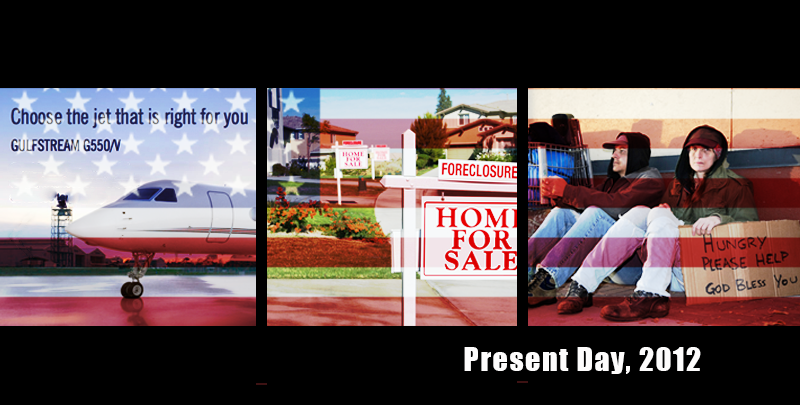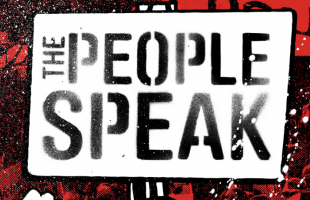There is a growing divide in the United States between the rich and everyone else. This increasing division matters because of how it affects opportunity, poverty and democracy.
– DIG DEEPER by David Johnson
First, How Do We Measure This?
Here is 1 way… the Gini coefficient:
A number between 0 and 1, where 0 represents an equal share (everyone has the same income or wealth) and 1 represents total inequality (one person has all the income or wealth).
The U.S. coefficient as measured by the Congressional Budget Office for income was approximately 0.48 in 1979 and approximately 0.59 in 2007 and continues to rise.
Looked at differently, the market share of the top 1% of households has doubled from 10% in the 70’s to 20% and the share of those in the 80-99% has fallen. Of all the countries in the world top income database, the US has the highest share of income for the top 1%, .1% and .01% percent of earners. South Africa and Argentina come close.
Why Does This Matter?
This increasing division matters because of what it means for opportunity, poverty and ultimately democracy.
Poverty rates are increasing—especially for children and minorities. The official US poverty rate is over 15% and the rate of kids under seven is 25%.
Americans believe there is equal opportunity generally—68% in 2011 believed that they were in control of their economic destiny— however, in reality the US has become less economically mobile (shown lower movement up or down in income) than Canada or most of Western Europe. 78% who start in the bottom fifth stay and 60% who start in the top fifth stay.
The causes of diminishing opportunity are complicated, but fundamentally it stems from two factors: infrastructure and tax policy.
Infrastructure?
Public education is not only not equal to private, but is inadequate. For example, in Los Angeles, although the numbers are disputed, a very high percentage of kids do not graduate from high school —as high as 50% by some estimates—and of those who do, a very high percentage do not read adequately—again, as high or higher than 50%.
There are many reasons this is allowed to occur of course, but one is that people of financial capacity do not send their children to public school.
It is not just schools, it is access to:
- Health Care
- Recreational Facilities
- Transportation
- Adequate Housing
- Security
Take Los Angeles again for example, those with capacity not only send their kids to private schools, but have private insurance or private doctors who do not accept any insurance or “concierge” doctors, private recreational facilities in the form of yards, clubs, weekend houses, of course private cars, sometimes private jets, private houses or several and private security patrols.
With everything provided privately, there is both less incentive to assure that public infrastructure works well and also less awareness that it does not.
It seems nearly impossible to have a functioning democracy in the context of this division in wealth and income, and in opportunity.
This remains true even if campaign finance rules were not already set up to give great power to those who contribute the most. (More on this in “Campaign Finance Reform”)
So… What Is The Solution?
Provide more opportunity through:
- better public infrastructure — education, health, recreation, transportation, housing, and security —
- adjustments in tax policies — capital gains rates, ordinary income rate adjustments to approach pre-Reagan progressiveness
We cannot rely on our representatives in government to make the change—they are increasingly deadlocked and at times seem to be more interested in retaining their power and position than in doing the people’s business. We believe, and it has been proven, that if we act individually, and then together in groups, we can and will create change. If you don’t believe it is possible… take a look at the example of so many Americans before us who have (watch: ‘The People Speak’).
DIG DEEPER by David Johnson, Edited by Adam Paul Smith, Images & Infographs by Adam Paul Smith
All content herein © 2012 Act 4 Entertainment, LLC
For comments & questions, please use comment feature at the bottom of this page


